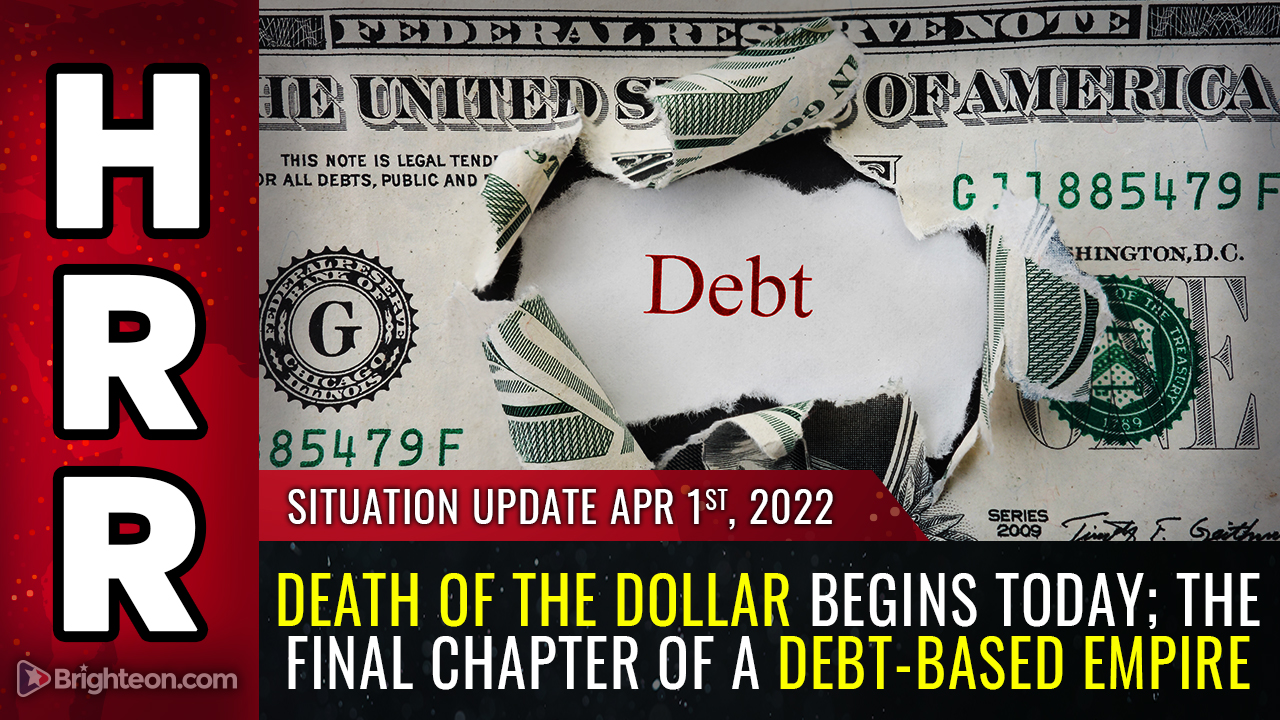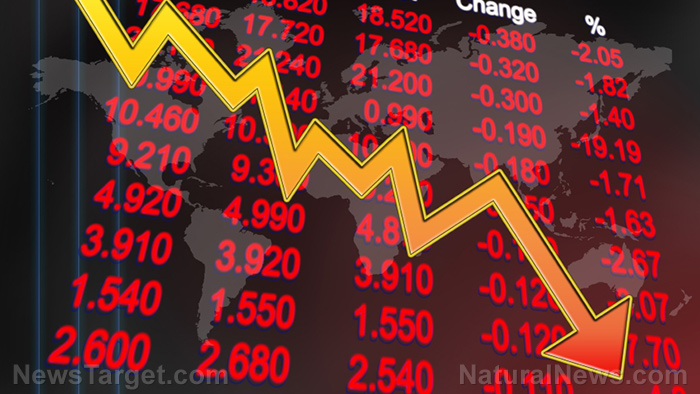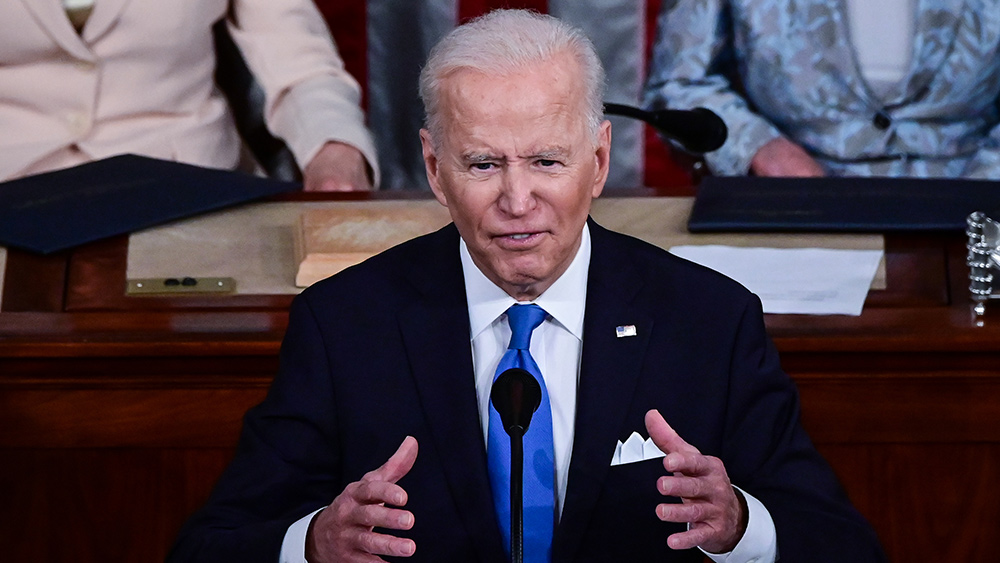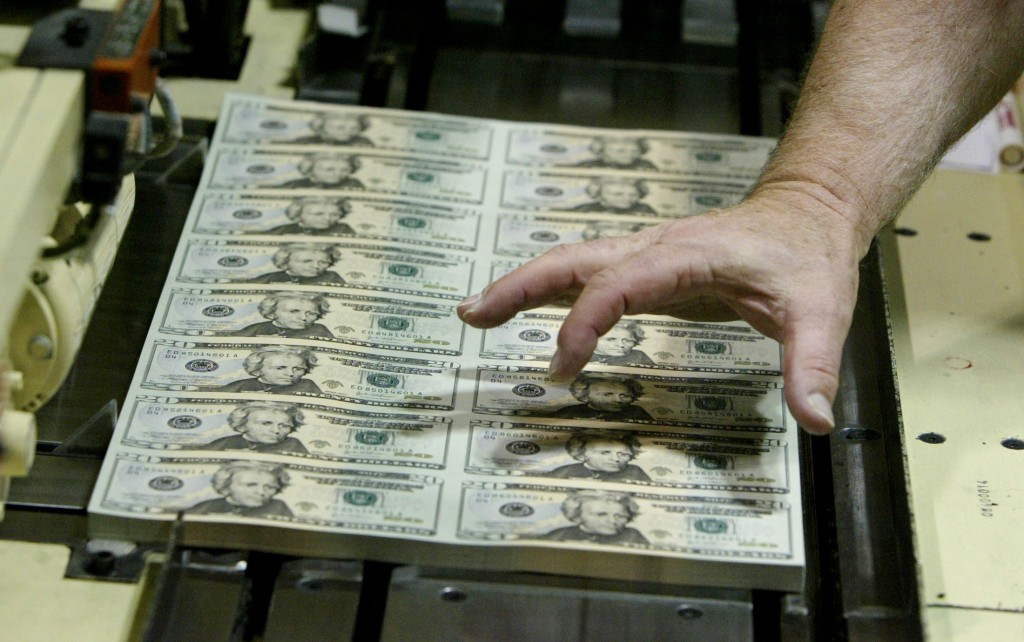10 Steps to protect your money from the coming financial crisis
02/22/2022 / By Nolan Barton

The purchasing power of the U.S. dollars has been taking a hit this past year. The U.S. consumer price index (CPI) has increased by seven percent throughout 2021, marking the worst annual inflation in the country in four decades.
Compared with January of last year, consumer prices in the first month of 2022 are up 7.5 percent – the biggest year-over-year increase since February 1982, which was 7.6 percent.
A financial crunch is imminent. With that in mind, here are the 10 steps you can take to protect your money from the coming financial crisis:
Grow your emergency fund
Save up so that you won’t need to rely on credit in an emergency. It’s one of the best things any household can do to protect its finances. Every household should save what it can to build up a decent cash savings buffer.
“Building up a cash reserve for unexpected expenses protects you and your family. Keep growing your emergency fund until you have accumulated three to six months of expenses held in cash deposits that you can easily access,” said Ben Faulkner, a director at EQ Investors.
Make a budget
Have a clear oversight of what your weekly and monthly expenses are. That way, you know how much you have coming in and going out, and it will be easier to identify where it’s possible to cut back.
Having a clear budget can also make it easier to save money each month.
Maximize your purchasing power
Try to get a better rate for energy, banking, phone and broadband and other costs. Doing so can help ease your budgeting over the coming months.
Do a full review of your borrowings, savings, assets and financial position. Make sure you shop around to get the best deal for you and your family.
Choose the right account
Having the right account can make a huge difference. Some accounts charge several times as much as others for the same borrowing. In other words, finding the right account can help you save a substantial amount.
Protect your money from inflation
It’s essential to be proactive about savings and investments to ensure they aren’t damaged by market conditions.
Market shocks and the risks of inflation can eat away at the value of your household’s wealth.
Richard Flax, chief investment officer at MoneyFarm, said: “When it comes to your long-term savings, make sure inflation isn’t eating into the purchasing power of your money. Make your savings work harder for you on the markets – that way you can try to protect your money from inflation and grow it for your family’s future.”
Plan for rate rises
It’s essential to think about long-term financial strain and avoid debt if possible.
Try not to commit to mid- or long-term loans. Even if they’re low-interest or interest-free, these payments will still be a drain on your monthly bank balance, and you may well need these finances to help bolster your mortgage payments.
Don’t keep more in the bank than you’re willing to lose
American entrepreneur Mark Moss said: “Don’t invest more than you’re willing to lose.”
It’s basically the same with banking. And because of the soaring inflation, the money that you keep in the bank is likely a lot less valuable now than before.
Overpay your mortgage where possible
Overpaying your mortgage can give you far more options, especially if any future financial crash caused house prices to fall.
Many first-time buyers only have a small amount of equity in their homes, meaning that if prices fell even by 10 percent they could end up owing more than their property’s worth.
Read stories from alternative media
It’s important to keep up to date with what’s happening in the financial world as it impacts your money on a day-to-day basis.
Moss urges people to read stories from alternative media outlets because the people controlling the world are also controlling the mainstream media. But they’re losing their grip now, according to Moss.
“These are the people that work at the World Economic Forum [WEF]. They work at the IMF [International Money Fund]. They used to be able to control the people through the information that was available, but the internet has changed everything,” he said.
Because of the internet, Moss noted, people from different parts of the world can now read stories from alternative media outlets that are not under the control of WEF and IMF.
Invest in supplies
Food prices are expected to increase further in the coming months, so it’s not a bad idea to buy a little bit extra every time you go to the grocery store. (Related: Prepare for inflation-induced shortages by stocking up on these essentials.)
Buy some extra canned goods even if you don’t eat them. They may be useful for trade later for other supplies that you want or need.
More related stories:
No let-up: Inflation in the US expected to get even worse.
Inflation and Biden economic policies forcing more Americans to turn to food banks.
The Federal Reserve hides price inflation, but why?
EPIC FAIL: Biden’s first year in office marred by worst annual inflation in four decades.
Watch the video below about the 10 steps to protect your money from massive coming changes.
This video is from the Prosciencetruth channel on Brighteon.com.
Sources include:
Submit a correction >>
Tagged Under:
Bubble, chaos, Collapse, emergency fund, finances, financial crisis, how to, Inflation, investments, money supply, mortgage, preparedness, risk, survival, tips
This article may contain statements that reflect the opinion of the author
RECENT NEWS & ARTICLES
COPYRIGHT © 2017 PENSIONS.NEWS
All content posted on this site is protected under Free Speech. Pensions.news is not responsible for content written by contributing authors. The information on this site is provided for educational and entertainment purposes only. It is not intended as a substitute for professional advice of any kind. Pensions.news assumes no responsibility for the use or misuse of this material. All trademarks, registered trademarks and service marks mentioned on this site are the property of their respective owners.




















